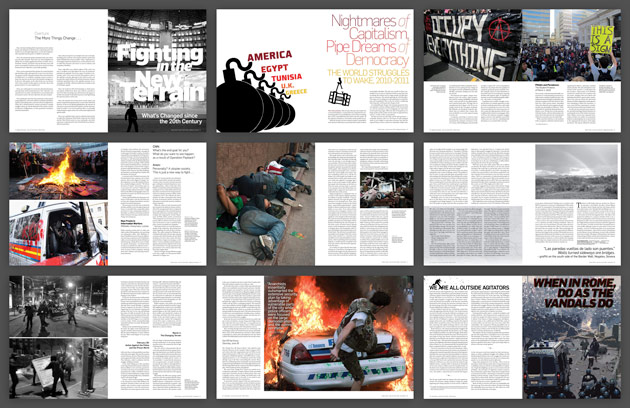Billions around the world have watched the familiar pageantry of the US Presidential race: Trump, the champion of the new extreme right, laying the groundwork for the despotism to come; Sanders, the partisan of an impossible dream, who nonetheless succeeded in luring disaffected millions back into electoral politics; Clinton, the despised representative of the status quo—around whom the hapless majority are forced to rally, since the future is sure to be even worse. Contemplating this bleak spectacle, some people object that this isn’t real democracy.
This talk about real democracy will be familiar to anyone who lived through the Occupy movement or one of its overseas equivalents. In 2011, from Tunis to Madrid and New York, movements triggered by the economic crisis turned into experiments with new forms of governance. By 2014, the luster of real democracy had begun to wear off: the Ukrainian revolution confirmed the right-wing appropriation of the discourse, while the movement that spread from Ferguson began with a riot, not an assembly. But next time revolution is on the agenda, we’ll surely hear more calls for “real” democracy. As long as democracy is the only paradigm we have for change, even anarchists will demand it.
Reflecting on the revolts of the preceding decade, we decided it was high time to get to the bottom of what democracy really is—and whether it’s what we want, after all. After years of research, discussion, and experimentation, we are excited present our conclusions in a massive new feature: From Democracy to Freedom.
In this text, we examine the common threads that connect different forms of democracy, trace the development of democracy from its classical origins to its contemporary representative, direct, and consensus-based variants, and evaluate how democratic discourse and procedures serve the social movements that adopt them. Along the way, we outline what it could mean to seek freedom directly rather than through democratic rule.
This is the flagship text in a series we will be publishing over the next several weeks, including testimony and critical analysis from participants in directly democratic movements around the world.
Read the feature.
























